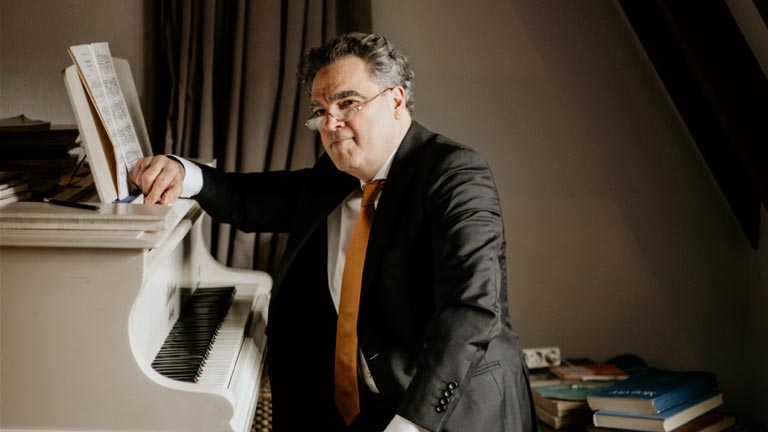Singing is the mother tongue of us all
Sir Y. Menuhin
We agree with Master Menuhin, because everyone can use their voice to sing, with or without any training.
But how quickly do most people who like to sing for themselves, for entertainment in karaoke, in a choir or as a soloist, encounter problems with high notes, changes in register, volume, intonation or endurance without having a solution?
Very quickly the truth of the matter becomes clear: “The gods put craftsmanship before art” or, as the great singing teacher Richard Miller put it:
“Artistry cannot be realized without the technical means for it’s presentation”
First of all, this means that in contrast to the instrumentalist, who finds his instrument already completed and set before him, we first have to set up ours in order to be able to play it.
This process is of necessity an individual approach to training, since each person behind a voice is anatomically, physiologically and psychologically different. In addition, we cannot see our instrument and can often only influence it indirectly.
As well as a sound methodology, this process requires empathy, which encourages the joy of getting involved on both sides.
My lessons can be presented in German, English, French, Italian and Spanish because I speak these languages and also sing in them, which is very important in terms of working on the repertoire.
I teach the techniques of classical vocal training, based on the latest scientific findings in anatomy, physiology, acoustics and psychology (the functional technique) as well as on the empiricism of the teachings of the old Italian Bel Canto school of Garcia and Lamberti).
Using my experience as a vocal artist and voice coach, I teach not only the theoretical basics and technical exercises, but also a holistic process of personality development, which is initiated in order to sing with the self-confidence you need in front of an audience.
I will also address the nerves, the stage fright, dry mouth and shallow breathing that affects a performance. There is a remedy for this too, so nothing has to stand in the way of the joy of your vocal performance.
Our voice is the barometer of our psyche. As I have already said, the instrumentalist “only” has to play his instrument, since it is already there and ready in front of him. However, the singer must first build the instrument of the voice in order to gain the ability to use it to its full potential.
This process should start by paying attention to the large, outer muscle groups, and then move into the inner, finer structures. The following topics are dealt with and explained in exercises:
- Letting go
- Posture
- Breathing and Air Management
- Relaxation
- Phonation
- Vocal register and vowel balance
- Resonance
- Voice care, or “Love your Voice”
If you want to go on a journey of discovery into your voice with me, then I would be happy to accompany you, and I am already curious about what we will find there. You can say anything, you can sing anything except “I can’t do that”. Because when we were babies, we all had a healthy, strong voice and we used it to annoy our parents.
Rest assured that your voice is still there, we just have to free it!

